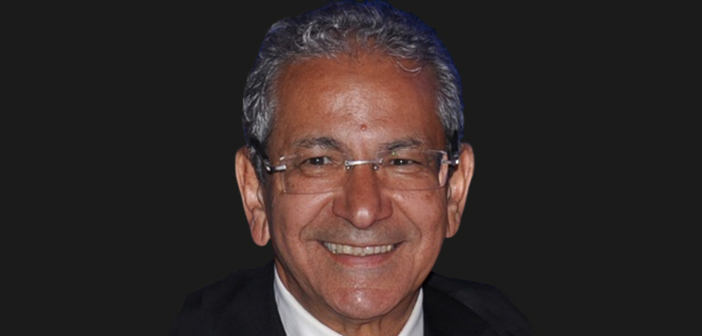The Integrator had an exclusive interview with Abderahman Belgat, President of World Association for Hospitality and Tourism Education and Training (AMFORHT), an affiliate member of the UNWTO.
How do you perceive the shift in importance from short-term operational concerns to long-term education and training within the hospitality industry, and why is it crucial for the industry’s future growth?
It is crucial to assess the current situation after the impact of COVID-19. What has unfolded since then? What aspects should we analyze? Is the emphasis solely on the present or should we consider the future? For instance, the deal between AMSA Hospitality and Accor that happens today at ATM, 2023 holds significant importance as it combines vision and strategy. Many companies have suffered financial losses, resulting in a strong focus on immediate operational concerns. However, it is essential for us to realize that education and training play a pivotal role. Today, education and training are key to shaping the future, not just working to meet short-term needs like paying rent, car expenses, or debts. Building a 5-star hotel, for example, may take five years, while developing managers requires at least ten years and achieving a high-level managerial position may take 12 to 14 years. It is crucial to understand these details within our industry. AMFORHT, being a worldwide association representing 72 countries and encompassing over half a million students, teachers, and organizations, is significant. As an Arab Muslim, I am proud to be the first African in this position. It’s very important to highlight that today the main capital is not oil, gas, It’s education and training. Recognizing this fact enables us to secure a prosperous future. While infrastructure plays a role, focusing on airports or other facilities, education and training are fundamentally different. Our aim is to ensure that every country worldwide prioritizes the economic industry of tourism, rather than diverging into various sectors. That’s where the true distinction lies. Personally, I am attending ATM to stay updated and witness the progress of the deal between AMSA Hospitality and Accor. This project is of great importance to me because it involves Accor, a global company with immense knowledge, collaborating with AMSA Hospitality that has the knowledge of Saudi Arabia, not only of the main big cities but also of all the possible tourism attractions across the country.
How important is education in the Hospitality industry?
Education and training serve as the primary key to success in the hospitality industry. It is not limited to adults alone; it encompasses the youth as well. Education becomes your pathway as you grow and progress. You take steps forward, gradually advancing over two, three, or four years. It is a wonderful journey.
Consider a scenario where you can venture to another country, perhaps a financially disadvantaged one like Bangladesh. If you possess education, hospitality skills, and training, I am confident that Bangladesh or any other impoverished nation could experience development. Tourism is not something that should be only enjoyed by the people who have abundant wealth.
In Dubai, the focus often revolves around those who have wealth to come here—those with money. But for those who lack financial resources, they remain in their struggling home countries. However, by offering education and hospitality opportunities in various nations, everyone can partake in the benefits.
Education, training, and hospitality are critical because the tourism industry is challenging. When a country attracts tourists, it fosters peace since tourists are averse to conflict. Hence, countries concentrate their efforts on establishing peace to attract visitors, making the world a more peaceful place to live in.
How is technology facilitating access to education in the hospitality industry?
What exactly is technology? It is merely a tool. A lot of countries are known for their technological advancements despite economic challenges. People often inquire about technology, but it remains a tool, right? That can be bought by any country with money. On the other hand, education is distinct. It goes beyond reading books; it involves cultivating respect. In each country that is popular for having tourists there, hospitality serves as the language of tourism that brings respect and peace to the nation.
In the hospitality sector of the Middle East, which industry is currently experiencing significant growth?
From my perspective, having spent over 10 years in Saudi Arabia and being familiar with this region, I would say that hospitality is a natural aspect of the Middle East. It comes effortlessly, and the strength lies in the fact in countries like the USA or Japan, it is not as easy to grasp due to differences. The Middle East benefits from favorable conditions such as it is not densely populated like China, and due to high level of diversity everyone feels belonged. The presence of smaller cities makes it more manageable. The key is understanding and respecting the local ways. For example, I may be in Saudi Arabia today, but I acknowledge the importance of starting with the local population. By focusing on education and training for the residents, success can be achieved. Once you have your population well-prepared, you can then cater for visitors. Education and training come first, and with financial resources, technology can be acquired later.
Sometimes people perceive things as complicated, but in reality, it is about ensuring that the right individuals are in the appropriate positions. If you have a capable and forward-thinking leadership, the process becomes easier. However, if corruption and individuals motivated solely by money come into play, it becomes detrimental to progress. It is our responsibility to assist local leaders whenever possible to help them educate their populations for their long-term successful development.


 President of AMFORHT Discusses the Importance of Education and Training for the Growth of Hospitality Sector
President of AMFORHT Discusses the Importance of Education and Training for the Growth of Hospitality Sector